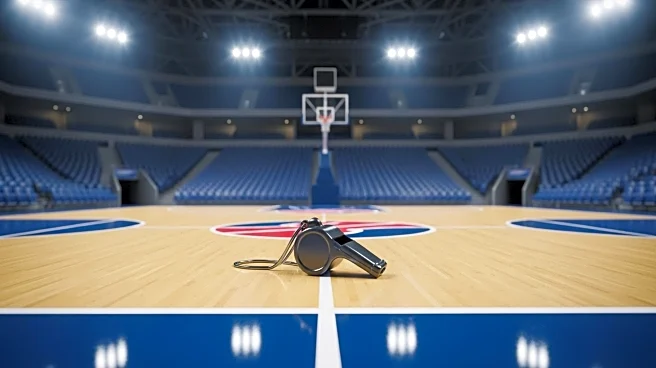What's Happening?
Tarleton State University has reinstated men's basketball coach Billy Gillispie after he was placed on temporary administrative leave due to an investigation into an anonymous complaint. The nature of the complaint has not been disclosed. During the investigation, associate head coach Glynn Cyprien served as the acting head coach. Gillispie, known for his rigorous coaching style, has faced previous allegations of player mistreatment during his tenure at Texas Tech, which led to his resignation in 2012. He also faced scrutiny at Kentucky, where he was fired in 2009. Despite these controversies, Gillispie has been with Tarleton State for six seasons, marking the longest tenure in his Division I coaching career. Under his leadership, the team achieved a 25-10 record in the 2023-24 season and participated in the CollegeInsider.com Postseason Tournament.
Why It's Important?
The reinstatement of Billy Gillispie is significant as it highlights ongoing concerns about coaching practices in collegiate sports. The decision underscores the balance institutions must maintain between addressing complaints and supporting their staff. For Tarleton State, Gillispie's return is crucial as they prepare for the upcoming basketball season, aiming to build on their recent successes. The situation also reflects broader issues in college athletics regarding coach conduct and athlete welfare, which can impact recruitment, team morale, and institutional reputation. Stakeholders such as student-athletes, parents, and alumni will be closely watching how the university handles such matters, which could influence their support and engagement with the program.
What's Next?
With Gillispie's reinstatement, Tarleton State will focus on the upcoming basketball season, aiming to leverage his experience to achieve further success. The university may also review its policies and procedures to ensure a supportive environment for student-athletes. Observers will be keen to see how Gillispie addresses past criticisms and whether any changes in his coaching approach will be evident. The situation may prompt other institutions to re-evaluate their own practices and protocols regarding coach conduct and athlete treatment.











